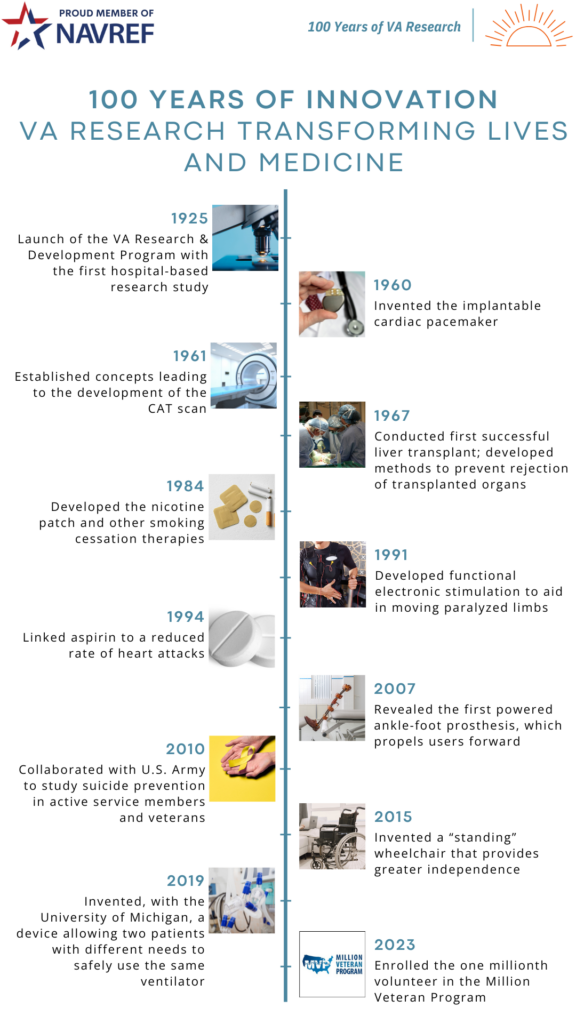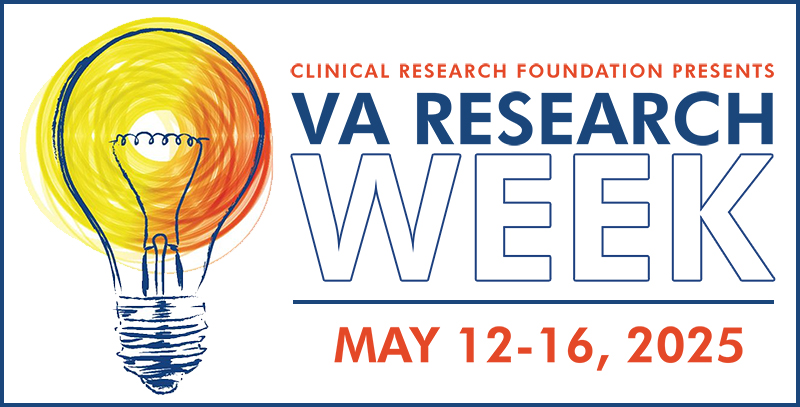

Over the last 100 years, research at the U.S. Department of Veterans Affairs (VA) has evolved significantly, driven by the changing needs of veterans and advancements in medical science. Here’s a brief summary:
1920s-1940s: Early research focused on the physical rehabilitation of veterans returning from World War I and World War II, particularly around prosthetics and recovery from injuries. In this era, the VA began formalizing its research efforts, although funding and institutional support were limited.
1950s-1960s: The VA’s medical research began to grow, especially in the fields of psychiatry and neurology, as more veterans returned with mental health conditions such as post-traumatic stress disorder (PTSD), which was not yet widely recognized. During this period, the VA established formal medical research centers to investigate both physical and mental health issues affecting veterans.
1970s-1980s: With the Vietnam War veterans returning home, there was increased attention to the effects of war on mental health. Research into PTSD expanded, and the VA became a major player in studying the condition, leading to advances in understanding and treatment. The 1980s saw the formation of specific research units dedicated to veteran health, including those focusing on drug addiction, PTSD, and the physical consequences of warfare.
1990s-2000s: The VA developed a more integrated approach to veteran care, emphasizing research in areas like chronic illness, spinal cord injuries, cancer, and Gulf War Syndrome, a condition affecting veterans of the 1990-91 Gulf War. Advances in medical treatments, mental health care, and veterans’ quality of life became central goals. The VA also became more involved in genetics and biotechnology, exploring how these innovations could benefit veterans.
2010s-Present: The VA’s research has become highly interdisciplinary, incorporating fields like genomics, regenerative medicine, and telehealth. Major strides have been made in treating PTSD, traumatic brain injury (TBI), and chronic pain. The VA also focuses on aging veterans, with significant efforts put into research on Alzheimer’s disease, diabetes, and other age-related conditions. There has been a growing emphasis on personalized medicine and improving veterans’ access to care through innovative technologies.
Throughout these years, the VA’s research efforts have helped shape public health policy, improved treatment for veterans, and contributed to broader medical advancements that benefit the general population. Today, the VA remains at the forefront of veteran-focused medical research, continuing to address the evolving challenges faced by those who serve in the military.

